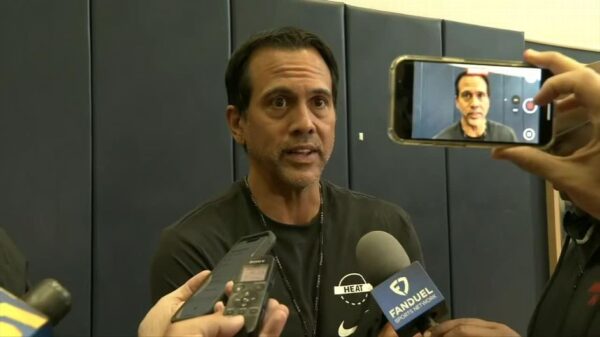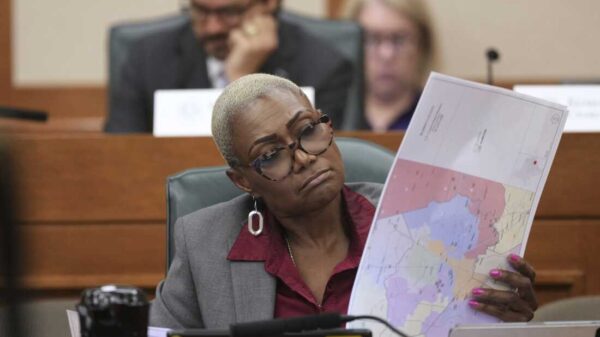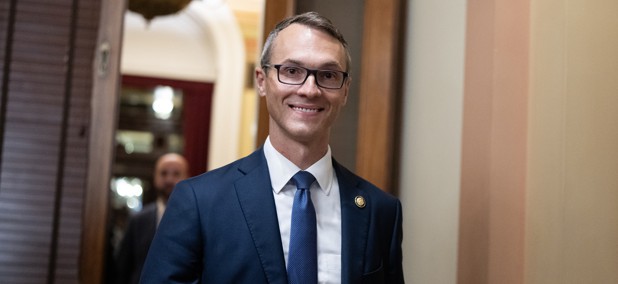Rep. James Walkinshaw, a Democrat from Virginia, has officially taken office, succeeding the late Gerry Connolly. Connolly, a prominent advocate for government-wide information technology (IT) initiatives, passed away in May 2023. Walkinshaw, previously a member of the Fairfax County Board of Supervisors and Connolly’s chief of staff for over a decade, is keen to continue his predecessor’s focus on federal workforce and IT modernization.
In a recent interview with Nextgov/FCW, Walkinshaw addressed critical issues facing the federal workforce, particularly concerning the Trump administration’s ongoing efforts to reduce the size of federal employment. He highlighted the precarious situation federal workers find themselves in, stating that they have been “under assault” for months, with layoffs that have at times been illegal and reversed by court orders.
Walkinshaw emphasized that a government shutdown would not grant the administration new legal authority to implement mass layoffs. He noted, “In a shutdown, federal workers have precisely the same legal civil service protections they have today when the government is open.” His remarks underscore the need for Congress to ensure that these protections remain intact.
Concerns Over Workforce Cuts and Data Security
Walkinshaw expressed grave concerns regarding the long-term impact of potential layoffs and the administration’s management of sensitive data. He criticized the Department of Government Efficiency (DOGE), stating that its focus is not on improving government efficiency but rather on fostering loyalty to Trump. According to Walkinshaw, the administration has spent significant resources—approximately $16 billion—paying employees not to work, which he argues is both inefficient and counterproductive.
He pointed out troubling developments at the Social Security Administration, where whistleblowers reported careless management of personally identifiable information. Concerns were raised about sensitive data being transferred from secure locations to less secure servers, potentially jeopardizing the security of American citizens’ Social Security numbers. Walkinshaw asserted, “It is reckless, dangerous and outrageous,” calling for thorough congressional investigations into these practices.
Walkinshaw has proposed the Limit on Sweeping Executive Reorganization Act, which would require any president to seek congressional approval before significantly downsizing or restructuring federal agencies. This measure aims to provide a safeguard against arbitrary workforce cuts, ensuring that there is an independent review process in place.
Modernizing Federal IT Systems
Continuing Connolly’s legacy, Walkinshaw is prioritizing government-wide technology modernization efforts. He underscored the necessity of investing in IT infrastructure, noting that while it may be cheaper to maintain legacy systems in the short term, the long-term benefits of modernization are substantial. “You have to have good people and good technology,” he stated, emphasizing that having one without the other hampers effective service delivery to the public.
One of the tools established to facilitate this modernization is the Technology Modernization Fund (TMF). Walkinshaw aims to ensure that this fund receives predictable, long-term financing, enabling agencies to commit to necessary upgrades without the fear of budget cuts derailing their plans. He criticized Congress for neglecting to provide adequate funding in recent appropriations bills, which he believes is essential for any meaningful modernization efforts.
Walkinshaw also mentioned the importance of accountability in IT initiatives, suggesting the development of a modernized scorecard that could build upon the previous Federal Information Technology Acquisition Reform Act (FITARA) scorecard. This scorecard would incorporate additional elements such as artificial intelligence adoption and cybersecurity measures, aiming to enhance transparency and effectiveness in modernization projects.
The new representative is also keeping a close watch on the Federal Risk and Authorization Management Program (FedRAMP). He expressed the need for more data regarding the effectiveness of recent reforms and stressed the importance of ensuring that the right safeguards are in place as agencies adopt cloud computing technologies.
Walkinshaw’s commitment to continuing Connolly’s work in IT modernization and protecting federal employees signifies a renewed focus on the challenges and opportunities within the federal workforce. As he navigates his new role, it is clear that his priorities will revolve around safeguarding employee rights and advancing technological innovation in government operations.


































































